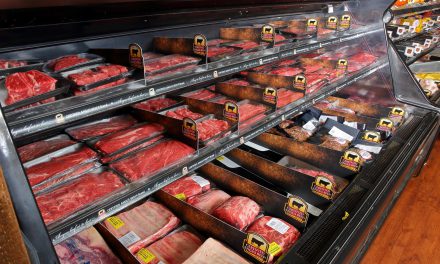At a meat purveyor’s dock in New York’s bustling Bronx, a pallet moves by forklift into a southbound, refrigerated truck. Eight days and many deliveries later, in a Charleston, S.C., back alley, Dave McBeath will be there with ready arms.
For a short time, contents of that pallet will be his to sculpt and prepare before seeing it off to a final delivery when a chef will apply finishing touches and customers will enjoy delicious, healthy meals.
Augusta born and Charleston reared, McBeath always had a knack for taking things apart: remote controllers, toys, appliances… “I didn’t care to put them back together,” he says, to his parents’ chagrin.
The fun was in the disassembly, deciphering the parts that made something whole. Butchery, the craft of breaking down greater portions of an animal for later cookery and consumption, was a natural fit. With hindsight, he admits it may have been lurking all along.
“My great-grandfather raised cattle and pigs to sell to a packer, and butchered for personal use, as well,” the descendent says, fascination still showing. “My great-grand uncle was a butcher at a butcher shop and grocery store.”
The childlike curiosity that left projects in pieces at home is at work today as the butcher for the Indigo Road hospitality and consulting group. McBeath prepares beef daily for Oak Steakhouse, Charleston, for The Macintosh and for Mercantile & Mash, the latter a home base for his culinary exhibit.
“The entire process is fulfilling, the parts now greater than the whole,” he says. “I’m doing something with my hands, something that I can really see.”
“Being really good at butchery is being able to do the same thing over and over again, except doing it better every single time,” McBeath says.
He expects that of himself, figures he owes it to the people who raised the animal and, of course, the animal.
“Every single cut you make is extremely important,” he says. “It took 26 months for it to sit on my butcher block. You better be smart about it, with good intentions. This isn’t just willy-nilly cutting meat.”
Commitment to the craft began as soon as destiny put all the pieces together in front of the boy.
McBeath sensed a pull to the kitchen as soon as he took a job as an Oak dishwasher at 17. His mom drove him to town to see where her son would be spending his afternoons and into the late night.
Those were the days when Food Network was pulling viewers into the romance of that world. McBeath wanted to know if it was real or all some Hollywood smoke screen.
“It gave me a taste of the real work ethic required to be successful in this business,” he says. “I’m glad I stepped directly into the fire.”
That dishwashing job lasted about two weeks before the hard-working high schooler was promoted to prep cook. A few months later he was on the line, and then came the chance to see butchery in action.
Seeing his natural knack, those up the line handed him a knife.
“I got to do a little bit myself, to see the whole process from a subprimal coming in to being broken down, portioned and cleaned. Then being cooked and served to the guest in front of me—that’s when I really fell in love.”
Mercantile, a quaint spot where patrons can buy home goods, work on a project over coffee or order a fresh beef sandwich, boasts a meat case full of McBeath’s work. There’s charcuterie made in house, Certified Angus Beef ® brand Prime ribeyes and strip loins for the choosing, where a customer can come ask him a question and then take something home to cook.
But all of that was a process, a story marked by a break to go to culinary school for an associate’s degree, then a move inland to help open a restaurant in the state capital before moving home to work for Indigo Road’s Chef Jeremiah Bacon. Then there was a break, a step back from all of it, that brought him home with a new perspective and a businessman’s hours.
Does he long for the excitement of the evening’s rush?
“I miss the action and the fire of working a service,” he says. “But the world turns for that nine-to-five schedule and things in life are easier. It’s a give and take.”
To be honest, McBeath doesn’t keep normal hours to this day.
He starts cutting between 4 and 5 a.m. when it’s still and he can be steady with the bone saw. Steaks cut in that predawn hour will be on someone’s plate by suppertime. It’s a definition of fresh. It’s due respect.
“People might think I put in a lot of hard work and long hours, but it’s nothing compared to what the ranchers put in—for a little bit of money and a whole lot of risk,” he says.
Get McBeath talking his favorite cuts and the flavor that comes from dry-aged beef and the shy butcher lets a little smile slip.
“You start cleaning off all that bark, all that age and take that first cut on the loin.”
It’s a play-by-play packed with passion.
“You see this beautiful, bright red, highly marbled beef on the inside, and every single time it gives me goose bumps. I just have so much appreciation for the meat.”









